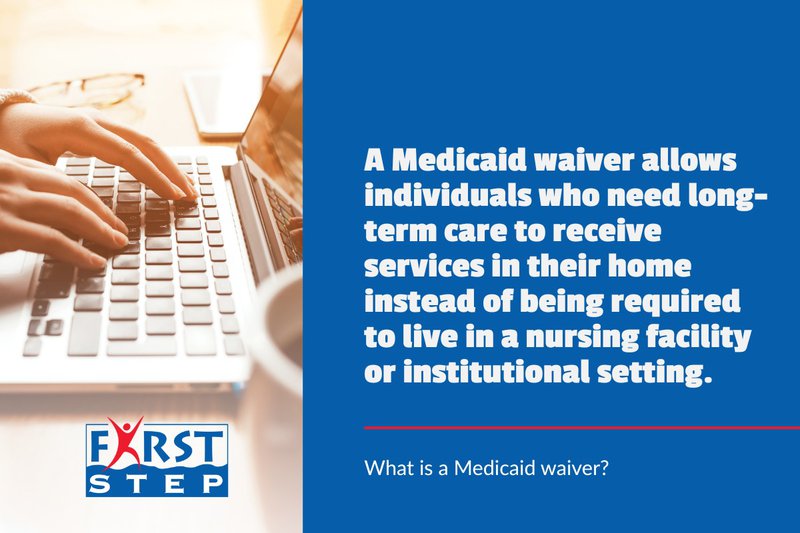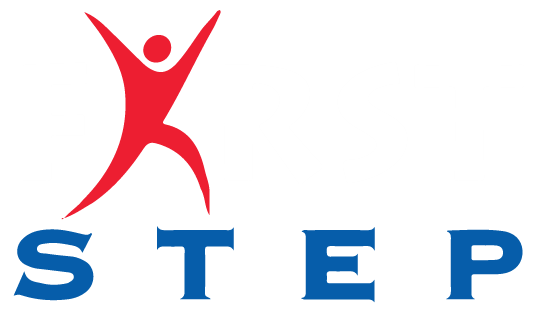Caring for a loved one with autism or a disability brings unique challenges, and finding the right support can feel overwhelming. If you are asking yourself, “What is a Medicaid waiver?”, you’re not alone. Could home-based care services make it possible for your loved one to receive quality support while staying in familiar surroundings? Understanding what a Medicaid waiver is is the first step toward accessing services that can transform your caregiving experience.
Key Takeaways:
- Medicaid waivers enable home-based care instead of institutional placement, allowing individuals to receive services in their own homes when costs don't exceed nursing facility expenses.
- Three primary waiver types exist: Section 1915(c) waivers support home services, Section 1115 waivers allow innovative approaches, and Section 1915(b) waivers create managed care options.
- Comprehensive services are available, including personal care assistance, therapies, transportation, respite care, and payment for family caregivers through self-directed programs.
- Financial eligibility typically requires assets under $2,000 and a monthly income below $2,900, though special trusts can help families who exceed these limits.
- Medical eligibility demands demonstrating a "nursing facility level of care" need, meaning substantial assistance with daily living activities or significant medical support needs.
- Application processing takes 30–90 days in most states, though waitlists can extend for months or years depending on state funding and program capacity.
Understanding What a Medicaid Waiver Is and How It Works
A Medicaid waiver allows individuals who need long-term care to receive services in their home instead of being required to live in a nursing facility or institutional setting.
The waiver "waives" specific limitations built into traditional Medicaid rules. Before these programs existed, Medicaid typically covered care only in hospitals or institutional group homes. This changed when Congress authorized Section 1915(c), creating legal authority for states to use federal matching funds to support services delivered in private homes.
Services Provided Through Medicaid Waivers
Services commonly covered under waiver programs include personal care assistance with cooking, bathing, dressing, walking, and medication management. Other supports include transportation to medical appointments, adult day programs, case management, and respite care, providing temporary relief for family caregivers. In many states, family members can serve as paid caregivers, offering both financial support and the comfort of familiar care relationships.
Each state creates and administers its own waiver programs independently. States determine eligibility criteria, set enrollment caps, define covered services, and establish reimbursement rates.
Types of Medicaid Waivers Available
Section 1915(c) Home and Community-Based Services Waivers
Section 1915(c) waivers represent the most common type, specifically supporting home-based care as an alternative to institutional placement. These waivers help people remain at home or in small group settings while receiving assistance with daily activities. States design specific waivers targeting particular groups—children with autism, adults with developmental disabilities, or individuals recovering from brain injuries.
Specialized Waivers for Children
Special waiver programs serve children with complex medical needs or disabilities. The Katie Beckett Waiver helps children under 19 access services based on the child's income alone, not counting parental income. These programs emphasize care in the least restrictive environment possible, helping children avoid prolonged hospitalizations or institutional placements.
Medicaid Waiver Eligibility Requirements in Arkansas
Qualifying for waiver programs requires meeting both financial and medical criteria established by your state.
Financial Qualification Standards
Income limits typically cap monthly income at approximately $2,900, though exact amounts vary by state. Asset limits generally restrict countable resources to $2,000 for individuals. Certain assets don't count toward this limit, including a primary residence, one vehicle, and personal belongings.
Income trusts can help people whose income exceeds eligibility limits. Excess income is deposited into the trust monthly, making the individual technically eligible.
| Financial Factor | Typical Limit | Special Considerations |
|---|---|---|
| Monthly Income | Under $2,900 | Income trusts can help those exceeding limits |
| Countable Assets | $2,000 individual | Primary home and vehicle excluded |
| Spousal Assets | Higher limits for healthy spouse | Protects community spouse from impoverishment |
Medical and Functional Eligibility
Applicants must demonstrate a need for a nursing facility level of care. This means requiring substantial assistance with activities of daily living or having significant medical support needs. States conduct comprehensive assessments to verify care needs through in-home evaluations and medical record reviews.
Qualifying diagnoses may include autism spectrum disorder, intellectual disabilities, Alzheimer's disease, traumatic brain injury, cerebral palsy, or epilepsy.

Navigating the Medicaid Waiver Application Process
Required Documentation and Assessments
Financial documentation includes recent tax returns, pay stubs, bank statements, and property deeds. Medical documentation establishes the need for nursing facility-level care through a comprehensive assessment by a state-designated evaluator. Supporting documents may include physician statements, medication lists, and for children, school records like Individualized Education Programs (IEPs).
Application Timeline Expectations
How long does the waiver application process take? Application processing typically requires 30 to 90 days from submission of complete documentation to an eligibility determination. Waitlists represent a separate timeline after approval and can last from a few months to several years depending on state funding.
Services Covered Under Medicaid Waiver Programs
Health and Personal Care Services
Personal care services form the foundation of most waiver programs. Trained caregivers assist with bathing, dressing, grooming, toileting, and mobility support. Therapeutic services delivered at home include physical therapy, occupational therapy, and speech therapy.
Community-Based Programs and Supports
Adult day programs provide daytime supervision, meals, social activities, and basic care assistance. Respite care gives family caregivers essential breaks from caregiving responsibilities. Case management services coordinate all aspects of care and connect families with additional community resources.
How Family Caregivers Benefit from Waiver Programs
Many states now offer self-directed care options that allow the person receiving services to choose, hire, train, and supervise their own caregivers—including family members. This provides financial compensation to family members who may have reduced work hours or left employment to provide care while maintaining existing caregiving relationships.
Frequently Asked Questions About Medicaid Waivers
How long does the Medicaid waiver approval process typically take?
The application review and approval process generally takes 30 to 90 days after submitting complete documentation. However, approval doesn't guarantee immediate services, as many states maintain waitlists that can extend from several months to multiple years.
Can family members be paid as caregivers through Medicaid waivers?
Many states allow family members to serve as paid caregivers through self-directed care programs. Restrictions vary by state—some exclude spouses or legal guardians from payment, while others allow any competent adult family member.
What is the difference between a Medicaid waiver and regular Medicaid?
Regular Medicaid primarily covers medical services like doctor visits and hospital care. Medicaid waivers extend coverage to long-term services and supports such as personal care assistance, adult day programs, and respite care that help people remain at home.
Practical Steps to Access Medicaid Waiver Services
Step 1: Research Arkansas waiver programs (Timeline: 1-2 weeks)
Contact the Arkansas Department of Human Services Medicaid division to learn which waiver programs match your family member's needs and identify basic eligibility criteria.
Step 2: Gather documentation and apply (Timeline: 2-4 weeks)
Collect required financial and medical documents. Complete the application thoroughly, attach all supporting documents, and submit to the appropriate Arkansas Medicaid office.
Step 3: Complete assessment and prepare (Timeline: 1-3 months)
Participate in the required functional assessment. If approved, work with your assigned case manager to develop a care plan and select services.
Expert Medicaid Waiver Support at First Step, Inc. in Arkansas
Understanding what a Medicaid waiver is and navigating the application process can feel overwhelming, but you don't have to manage it alone. First Step, Inc. serves families throughout Arkansas with compassionate, knowledgeable support for individuals with developmental disabilities and autism.
Our experienced team understands the complexities of Arkansas waiver programs and works collaboratively with families to access appropriate services. We provide person-centered planning that respects individual preferences and family circumstances while connecting you with evidence-based supports that make home-based care sustainable.
Whether you're just beginning to explore what a Medicaid waiver is and whether your family member might qualify, or you're ready to apply and need guidance through the process, First Step, Inc. is here to help. We believe every person deserves the opportunity to live with dignity in their community, supported by services that honor their unique needs. Contact First Step, Inc. today to discuss your situation and discover the possibilities for your loved one.


